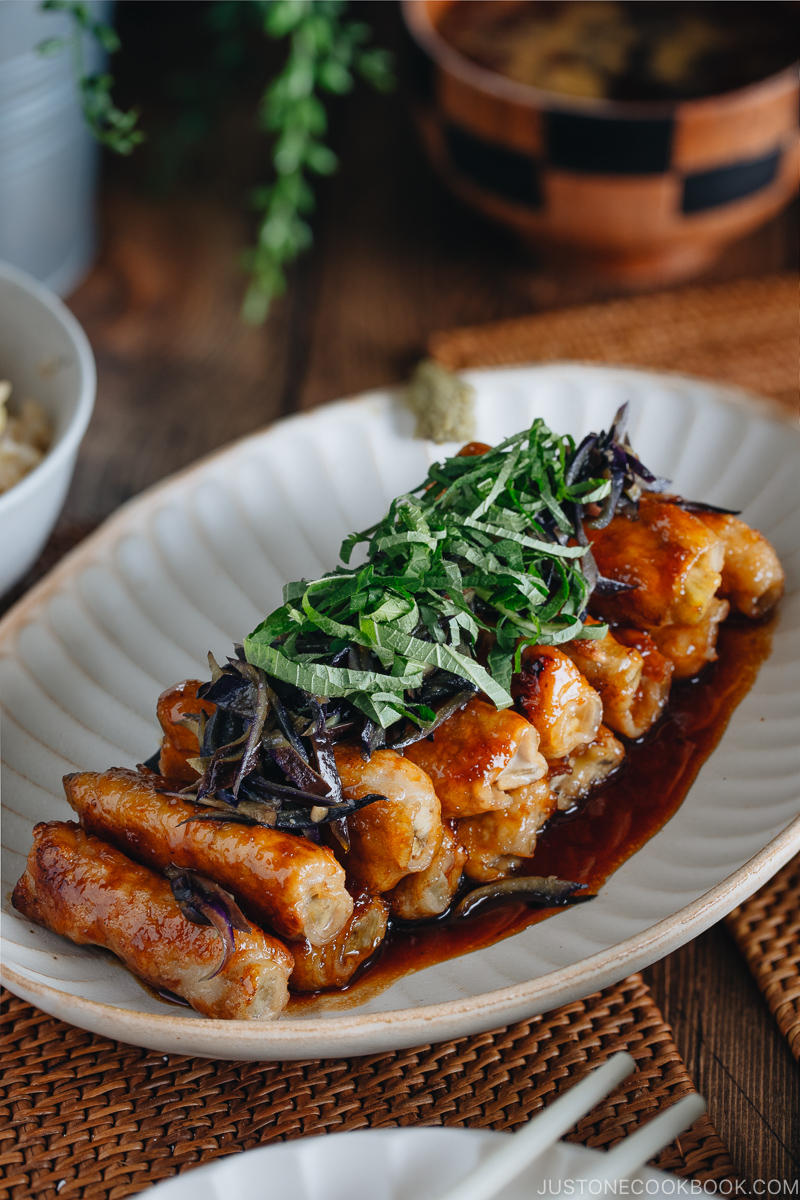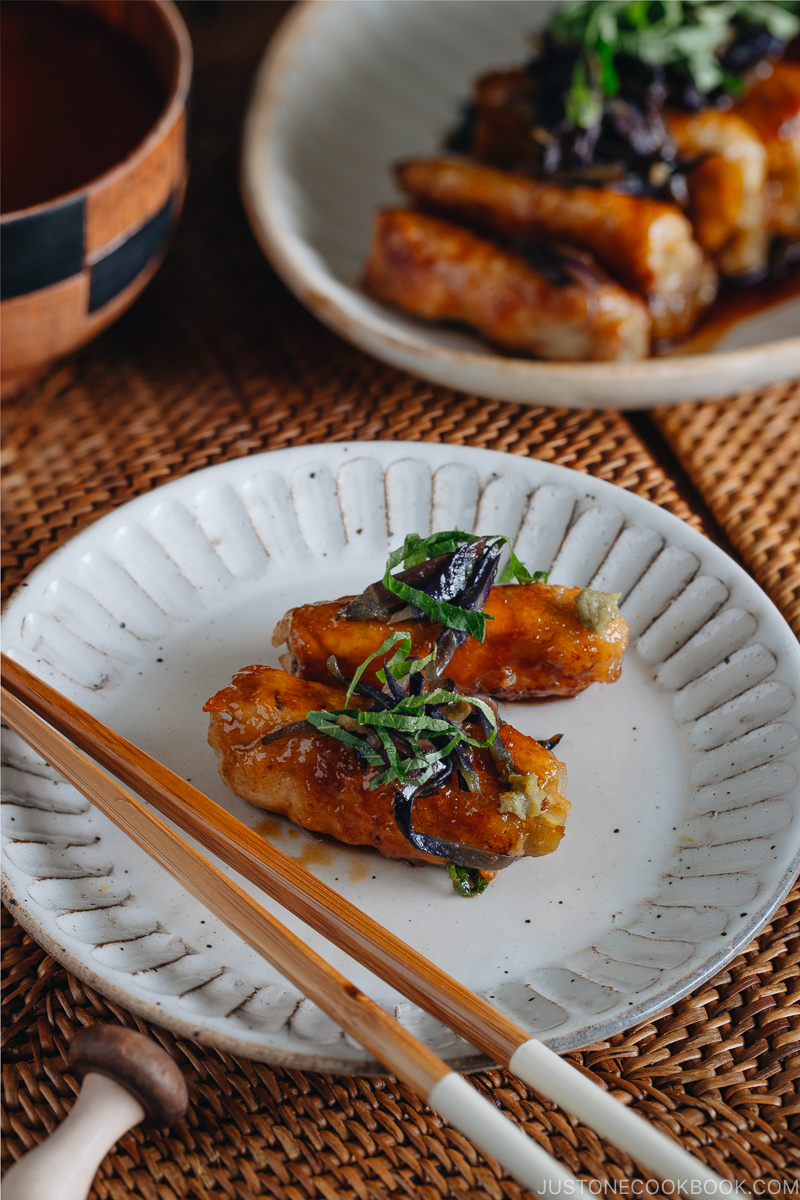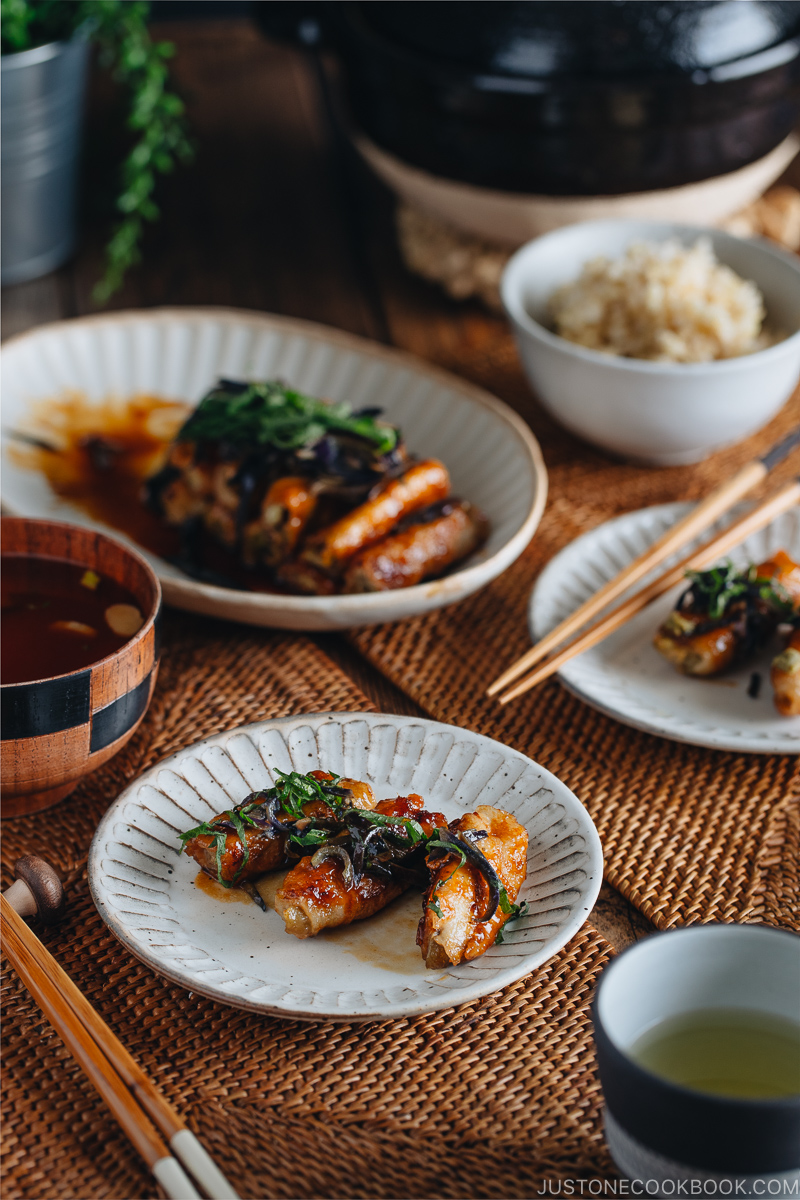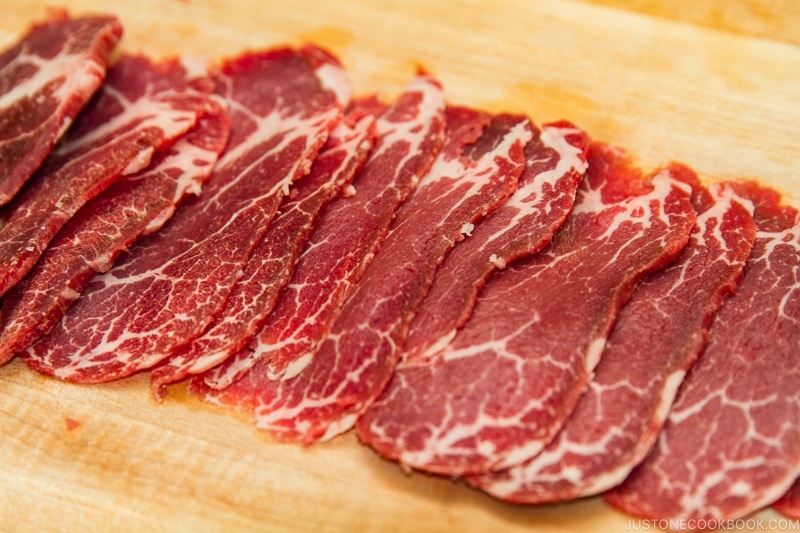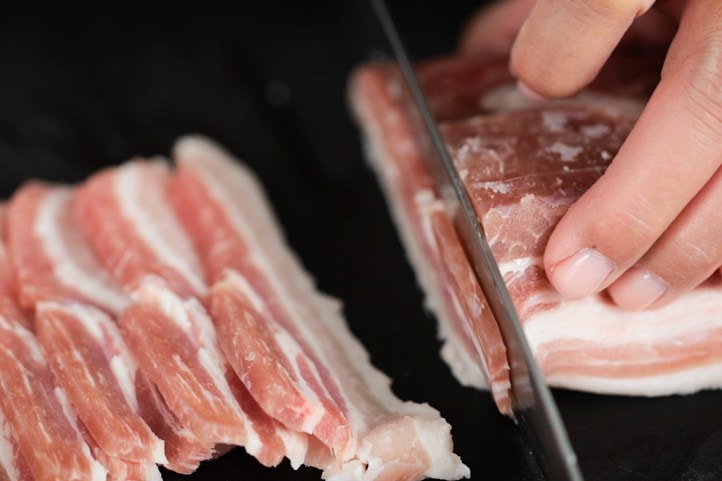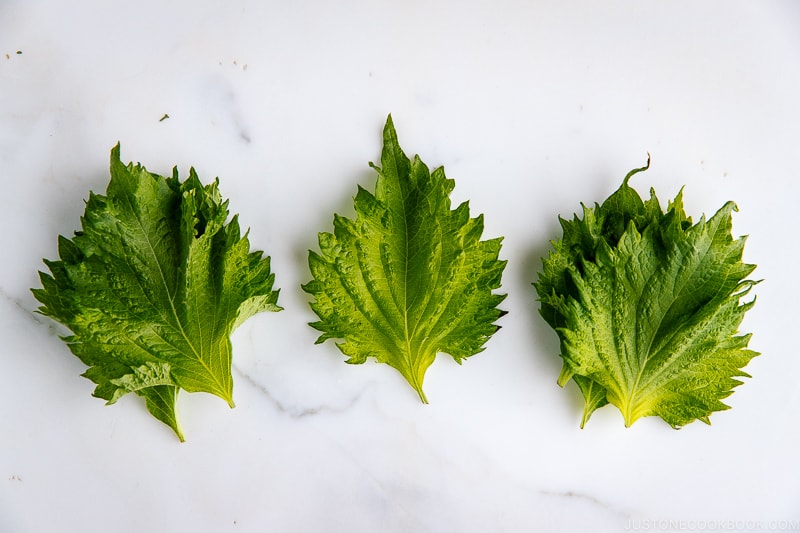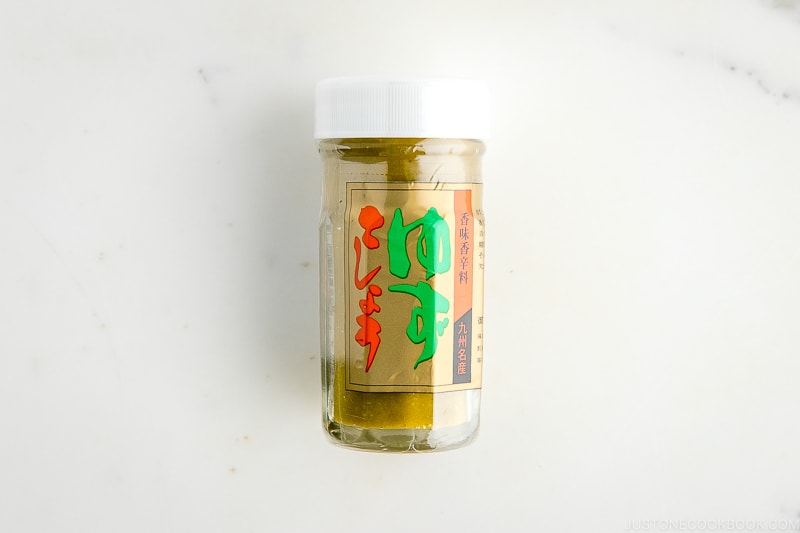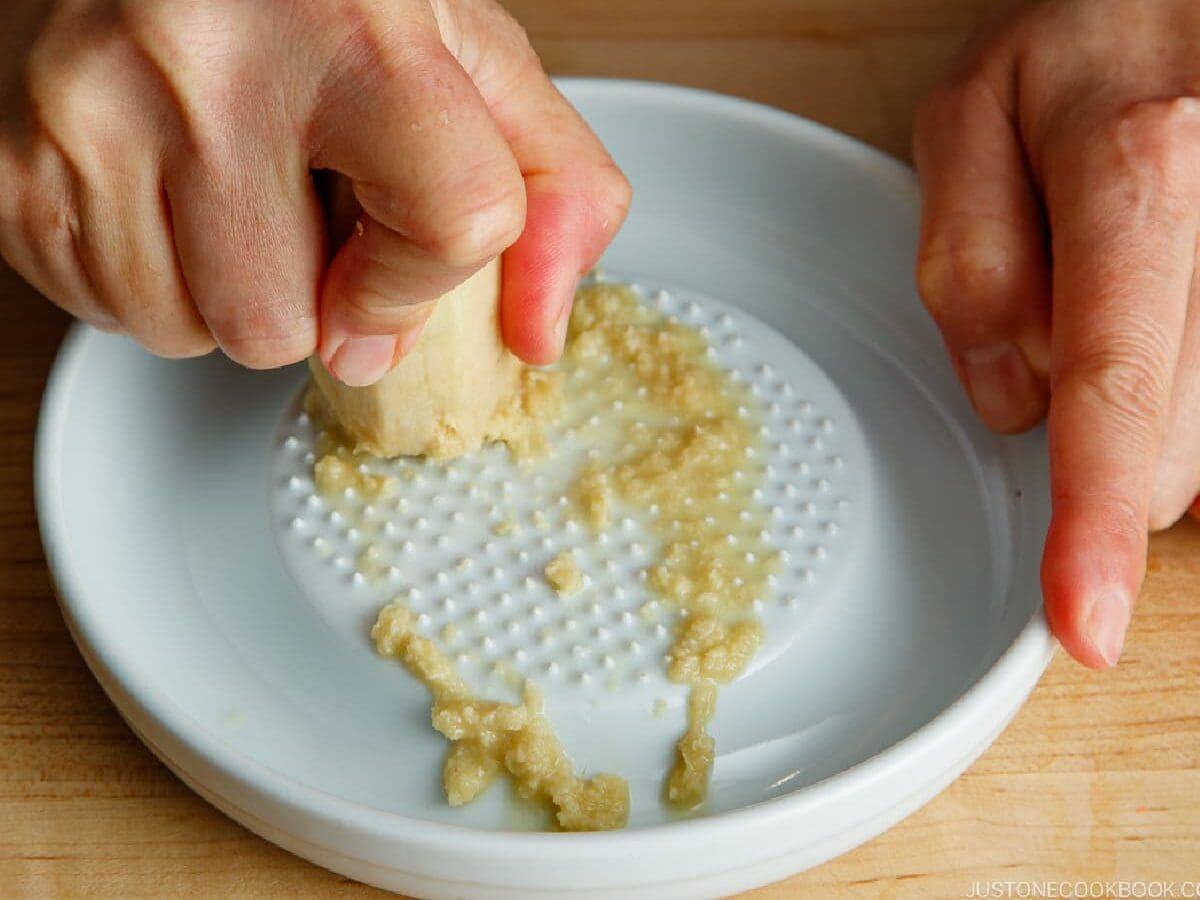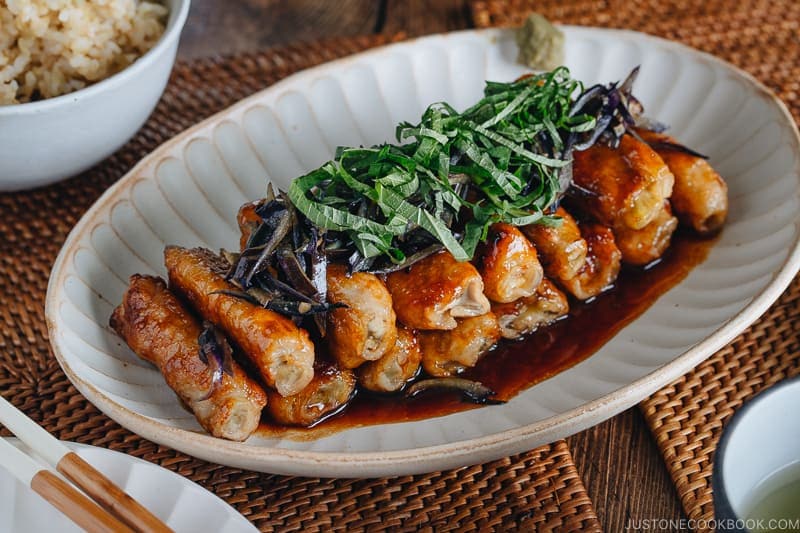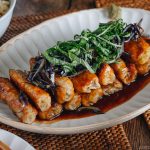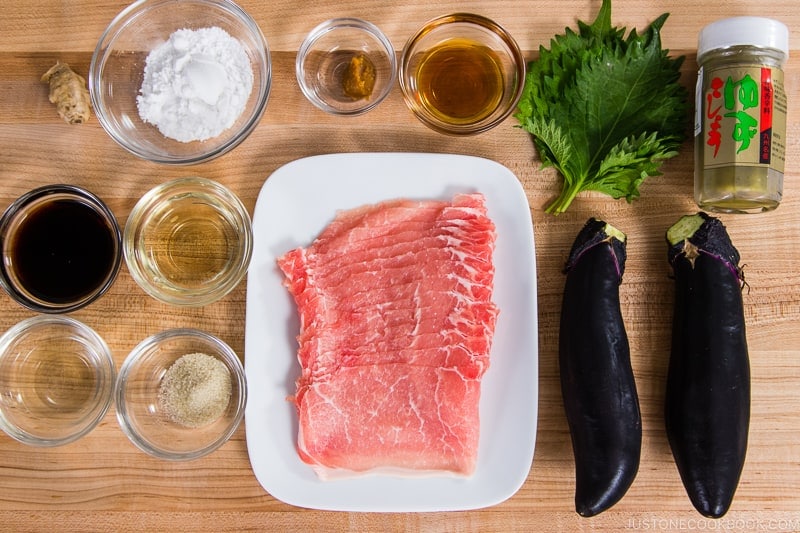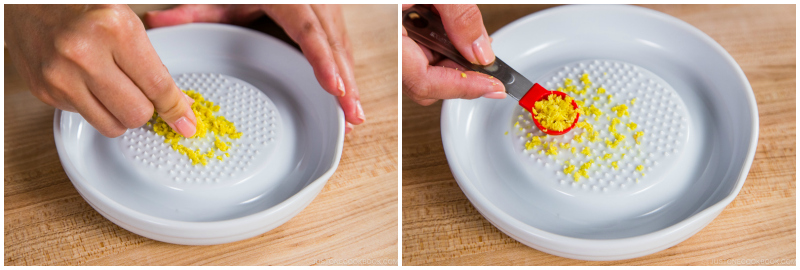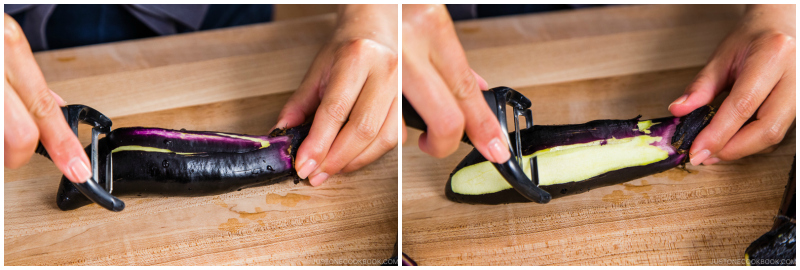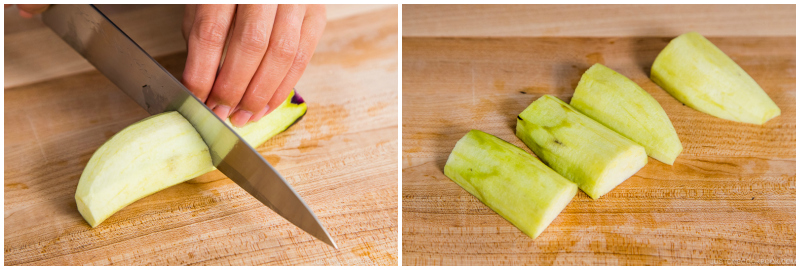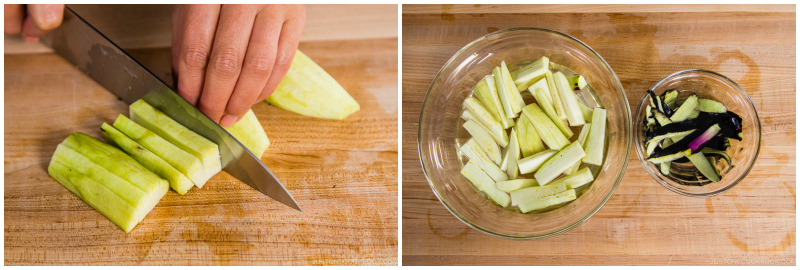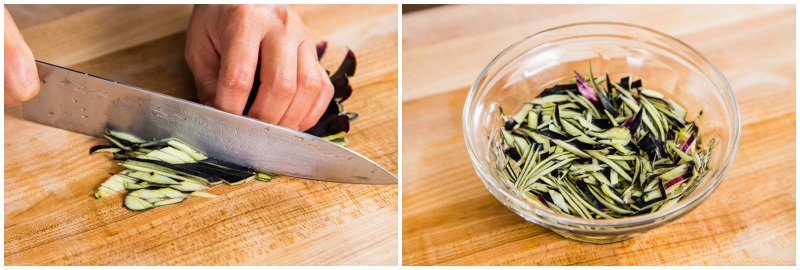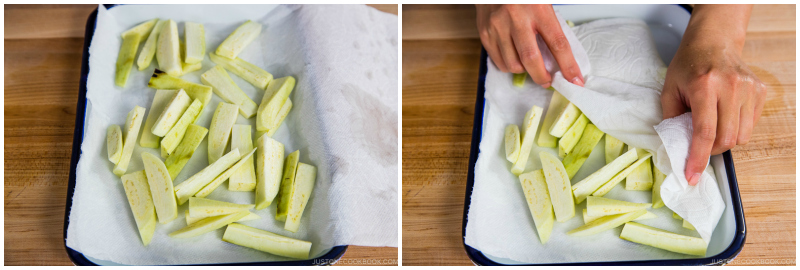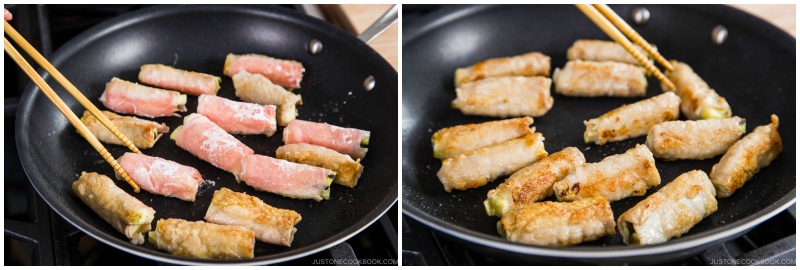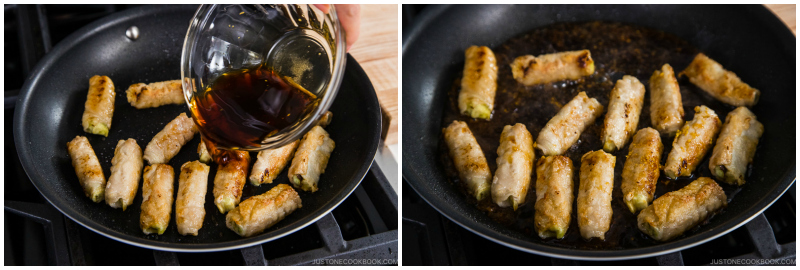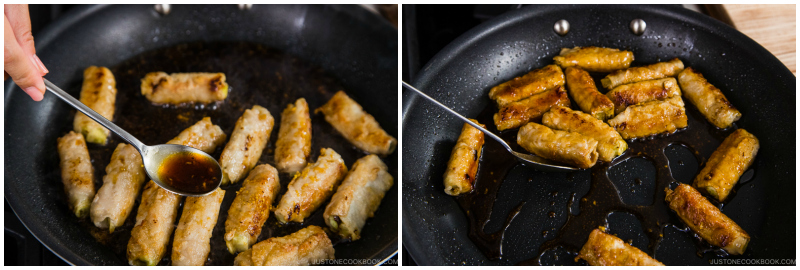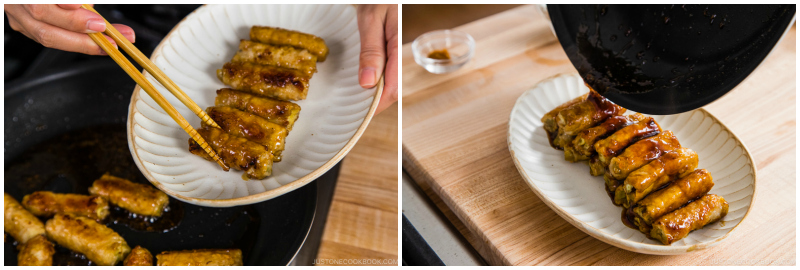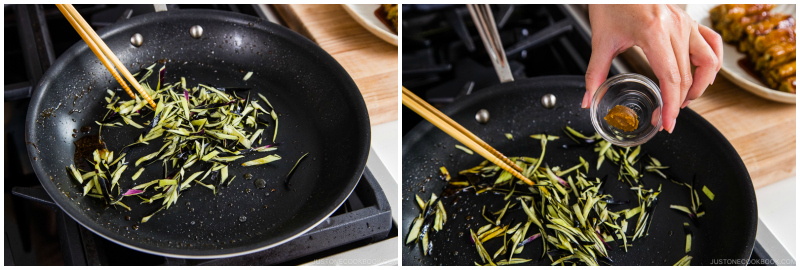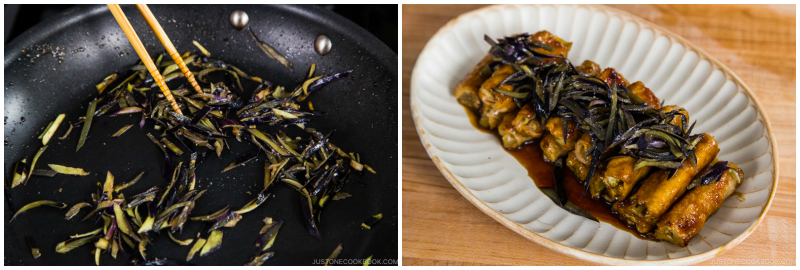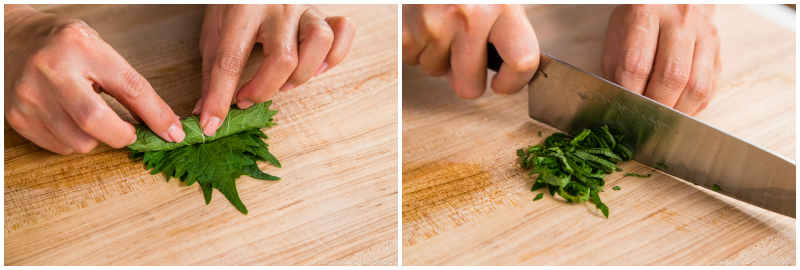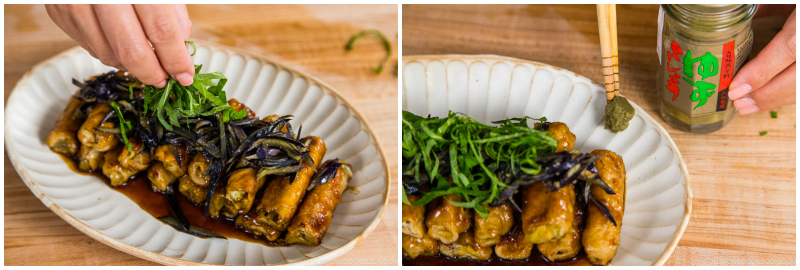One of my favorite flavor combinations includes pork, eggplant, shiso leaves, and a ginger-based sweet soy sauce. Today’s recipe—Ginger Pork Rolls with Eggplant (茄子の肉巻き生姜焼き)—brings all these ingredients together in perfect harmony. The result is a homey and tasty dish that goes amazingly with rice.
A Favorite Japanese Home Cook Dish
Many of you have asked me what Japanese people eat at home that isn’t typically served in restaurants. Well, pork or beef rolls, like today’s recipe, are perfect examples of dishes we enjoy at home. They’re the kind of honest, comforting food that our grandmothers and mothers cook for the family. Japanese people generally don’t consume large quantities of meat, so it’s uncommon to cook a whole chicken or a large cut of pork or beef. Instead, our meals usually include a variety of foods—rice or noodles for carbohydrates, plenty of vegetables, soy-based foods like tofu, seafood, and a small amount of meat. This pork roll recipe is simple and easy to make, and I especially love that it is bento-friendly. The kids get both vegetables and meat in one dish, and thanks to the delicious savory sauce, the pork rolls remain tasty even at room temperature by lunchtime. You’ll be surprised at how quickly you can prepare it and by the complexity of flavors it delivers!
Ingredients You’ll Need
Japanese eggplants — You can use long Chinese eggplants Thinly sliced pork loin (shabu shabu meat) Potato starch or cornstarch Seasonings: ginger, soy sauce, mirin, sake, and sugar Garnish (optional): Shiso leaves and yuzu kosho (Japanese citrus chili paste) (More details below)
How to Make Ginger Pork Rolls
Helpful Notes & Swaps
1) Thinly Sliced Meat
When you visit Japanese markets, you’ll find pre-sliced pork and beef that are as thin as paper. We call this cut of meat ‘usugiri niku (薄切り肉)‘, which means thinly sliced meat. These thin slices can come from various parts of the animal. For example, at the Japanese grocery store I frequent, they offer pork belly slices, ultra-thin pork loin slices (for Shabu Shabu), and slightly thicker pork loin slices (for Sukiyaki). The same applies to beef cuts. In Japan, there are even more categories for thinly sliced meat. If you can’t find thinly sliced meat locally, here’s the tutorial on How to Slice Meat Thinly (with video).
2) Shiso Leaves
Shiso (perilla leaves) is my favorite Japanese herb, which I often use to add extra zing and elevate a dish’s presentation. Although it’s an optional ingredient, it’s worth picking up if you live near a Japanese grocery store or are fortunate enough to find it at your local farmers market. This herb is also very easy to grow and requires little maintenance. Many Just One Cookbook readers have successfully grown shiso from seeds (which you can purchase online from this company). You can substitute it with mint or Thai basil, but keep in mind that their flavors are different from shiso. So, consider them as variations of this dish!
3) Yuzu Kosho
Originating from the Kyushu area, yuzu kosho is slightly spicy but packed with umami flavor.
Tips: How to Grate Ginger
Grating ginger can be a tedious task, which is why I love using Kyocera Advanced Grater. I’ve owned it for over a decade, and it makes grating so much easier! The raised central plate even allows the ginger juice to gather.
Similar Recipes to Make at Home
When you make these Japanese Pork Rolls for your family, be sure to cook extra rice, as everyone will be going for seconds! It’s everything we love about home-cooked food. On Just One Cookbook, you’ll also find various delicious meat roll recipes that use thinly sliced pork or beef:
Teriyaki Steak Rolls Potato Salad Pork Rolls Mashed Potato Teriyaki Pork Rolls Baby Carrot Beef Rolls
Editor’s Note: This post was originally published on February 21, 2011. New images and step by step images have been added to the post in May 2019.
